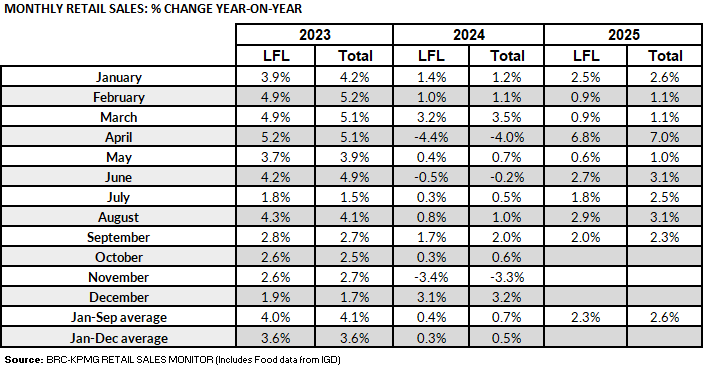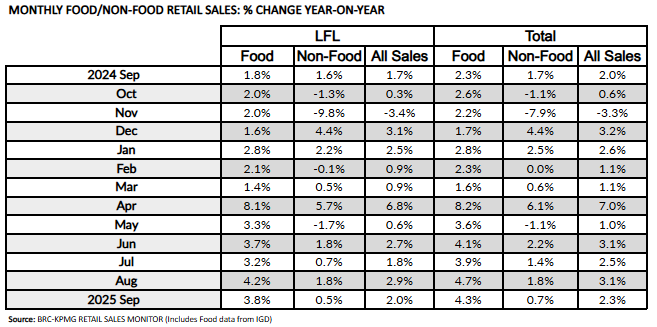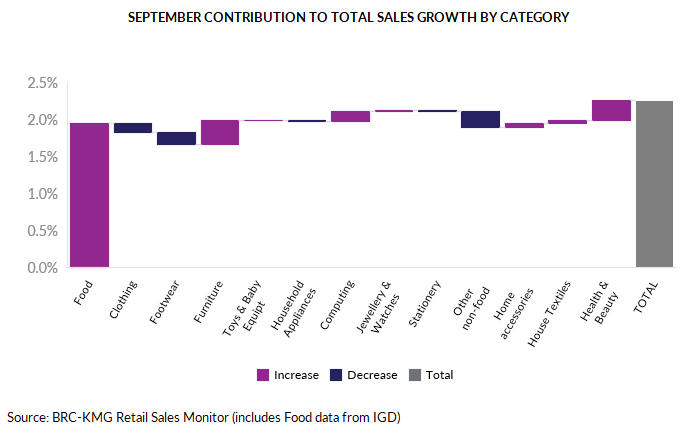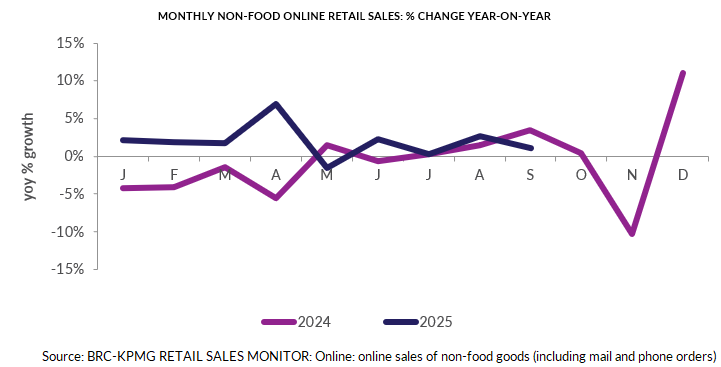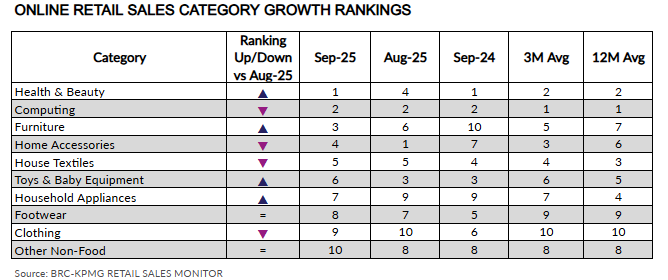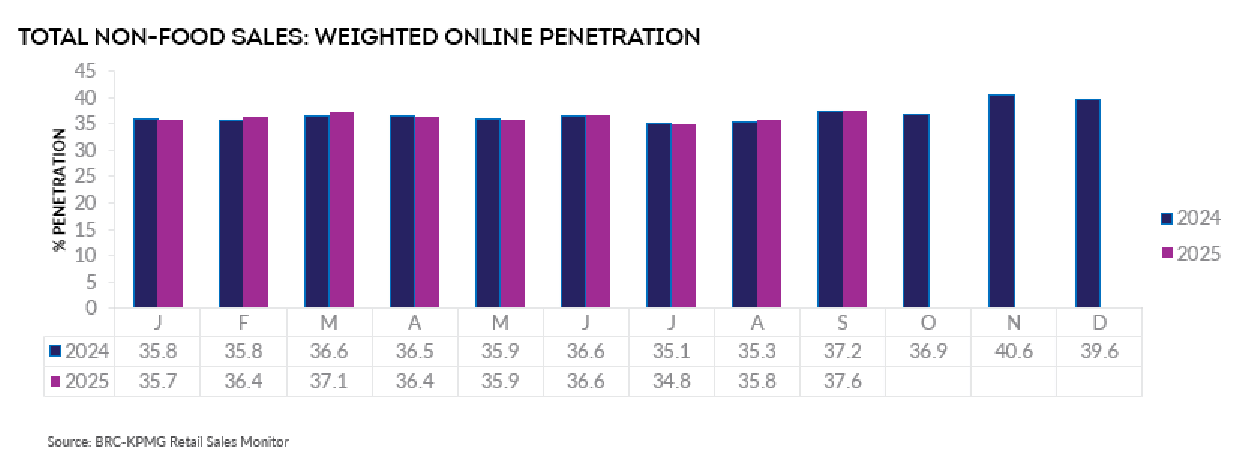Retail spending slows as Budget looms large
Covering the 5 weeks 31 August – 4 October 2025
-
UK Total retail sales increased by 2.3% year
on year in September, against a growth of 2% in September 2024.
This was above the 12-month average growth of 2.1%.
-
Food sales increased by 4.3% year on year in
September, against a growth of 2.3% in September 2024. This was
above the 12-month average growth of 3.4%.
-
Non-Food sales increased by 0.7% year on year
in September, against a growth of 1.7% in September 2024. This
was below the 12-month average growth of 0.9%.
-
In-Store Non-Food sales increased by 0.5% year
on year in September, against a growth of 0.8% in September
2024. This was above the 12-month average growth of 0.4%.
-
Online Non-Food sales increased by 1% year on
year in September, against a growth of 3.4% in September 2024.
This was below the 12-month average growth of 1.8%.
-
The online penetration rate (the proportion of
Non-Food items bought online) increased to 37.6% in September
from 37.2% in September 2024. This was above the 12-month
average of 37%.
Helen Dickinson, Chief Executive of the British Retail
Consortium, said:
“With the Budget looming large, and households facing higher
bills, retail spending rose more slowly than in recent months.
Milder weather meant shoppers delayed refreshing Autumn and
Winter wardrobes and growth in food sales was largely
inflationary rather than volume growth. Meanwhile, Electrical
sales were buzzing thanks to the release of the new iPhone and
Apple Watch.
“Rising inflation and a potentially taxing Budget is weighing on
the minds of many households planning their Christmas spending.
Retailers also face difficult decisions about investment and
hiring over the Golden Quarter given uncertainty over business
rates bills arriving in April. The future of many large anchor
stores and thousands of jobs remains in jeopardy while the
Treasury keeps the risk of a new business rates surtax on the
table. By exempting these shops when the Budget announcements are
made, the Chancellor can reduce the inflationary pressures
hammering businesses and households alike.”
Linda Ellett, UK Head of Consumer, Retail & Leisure,
KPMG, said:
“Overall sales grew in September, driven largely by
household goods and increased mobile phone sales, as prominent
brands launched new models. However, non-food sales are only
growing by around 1.2% on average, indicating
that spending continues to be very targeted as consumers remain
cautious. As we enter the ‘golden' quarter for the sector,
retailers are planning product ranges and promotions to try and
increase that rate of sales growth. They are also mindful
that the Budget is beginning to move into view, with related
detail about business rates reform and a general need for a boost
to consumer confidence.”
Food & Drink sector performance | Sarah Bradbury,
CEO, IGD, said:
“Shopper confidence remained muted in September, with some
tentative positive signs. These were driven by young, affluent
Londoners who are more confident in their financial outlook and
prioritise quality over cost saving. Grocery value growth
maintained strong year-on-year increases in September, driven by
food price inflation, which remains stubbornly high. Grocery
volumes continued to be sluggish with household budgets under
pressure, following the steady inflation rise since the start of
the year. Despite grocery retailers announcing early price
reductions to support budget-conscious shoppers, ongoing
speculation surrounding Autumn Budget announcements may temper
shopper sentiment ahead of the festive period.”
